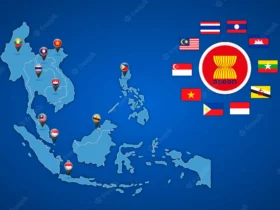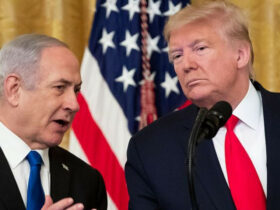By Abdul Kerimkhanov
The trilateral meeting of the chairmen of the parliaments of Azerbaijan, Pakistan and Turkey, following which the Baku Declaration was signed, had a huge impact on today’s diplomacy. The head of the Institute for Peace Studies and Diplomacy and Chairman of the Pakistan-SCO Friendship Forum, well-known Pakistani political scientist Muhammad Asif Nur said this in an interview with Day.Az. According to him, the speakers of the parliaments of the three countries came to the conclusion that the time has come to unite efforts for effective regional interaction, to ensure the benefits of exchange and trade and to cooperate on security issues and strategic prospects.
“The signing of the Baku Declaration at the end of the summit, as well as the fact that Azerbaijan is hosting such important regional meetings, indicates that the country is a leader linking countries through parliamentary and public diplomacy. The meeting in Baku strengthened ties between the three countries, providing an opportunity direct communication and exchange of ideas on the sidelines of the forum. Parliamentary diplomacy has made a huge contribution to enhancing the role of parliaments and their contribution to international affairs and international relations”, he said.
Parliaments of Azerbaijan, Turkey and Pakistan signed Baku Declaration
Such trilateral meetings between the chairmen of parliaments, the expert continued, help to establish a deep-rooted understanding between the parliaments of the countries, creating long-term relations.
“Seen before exclusively as the prerogative of foreign ministers, parliamentary diplomacy has created space by moving slightly away from formal diplomatic means towards a public-centered approach and public diplomacy. Through cultural ties between people, relations between states are improved, complementing formal diplomacy. Azerbaijan, thanks to its political and economic stability, plays a significant role in such meetings and promotes its national interests”, our interlocutor said.
As the chairman of the Pakistan-SCO Friendship Forum emphasized, one of the main goals of this meeting is to deepen cooperation between Azerbaijan, Turkey and Pakistan and strengthen parliamentary diplomacy, especially at a time when the whole world is faced with huge problems on a regional and global scale. “One of the main motives for holding the trilateral meeting is Pakistan and Turkey’s deep commitment to support Azerbaijan in the Armenian-Azerbaijani settlement. The same support for Pakistan can be observed from Azerbaijan and Turkey in the Kashmir issue. Azerbaijan and Pakistan are also in solidarity with Turkey in her desire to restore peace and order in Syria near its borders”, he explained.
Pakistan always supports Azerbaijan
To reflect the degree of mutual relations and solidarity, the delegations of Turkey and Pakistan visited the territories liberated from the Armenian occupation.
“The strengthening of allied relations is reflected in the Baku Declaration, where Azerbaijan, Turkey and Pakistan are named supporters of peace in the region. The need for contacts between the public is affirmed, when similar culture, religion and history are the basis for mutual cooperation. The Baku Declaration also recommends that the parliaments of the three countries create an effective basis for seamless interaction that can help speed up collaboration.”
The expert also touched upon regional ties within the framework of the ‘Belt and Road Initiative’. “The Sino-Pakistani Economic Corridor may be of interest to Azerbaijan due to its fastest access to the nearest seaport of Gwadar. As part of the Belt and Road Initiative, it is a matter of addressing and initiating cost-effective and timely trade interconnection projects. Azerbaijan, Turkey and Pakistan support each other at all international and regional platforms. The hearts of the three peoples are beating in one. The friendship and cooperation of our countries are important from the point of view of peace and prosperity in the region and beyond”, summarized Muhammad Asif Nur.
The interview first appeared in Russian on the news outlet day.az.

















Leave a Reply